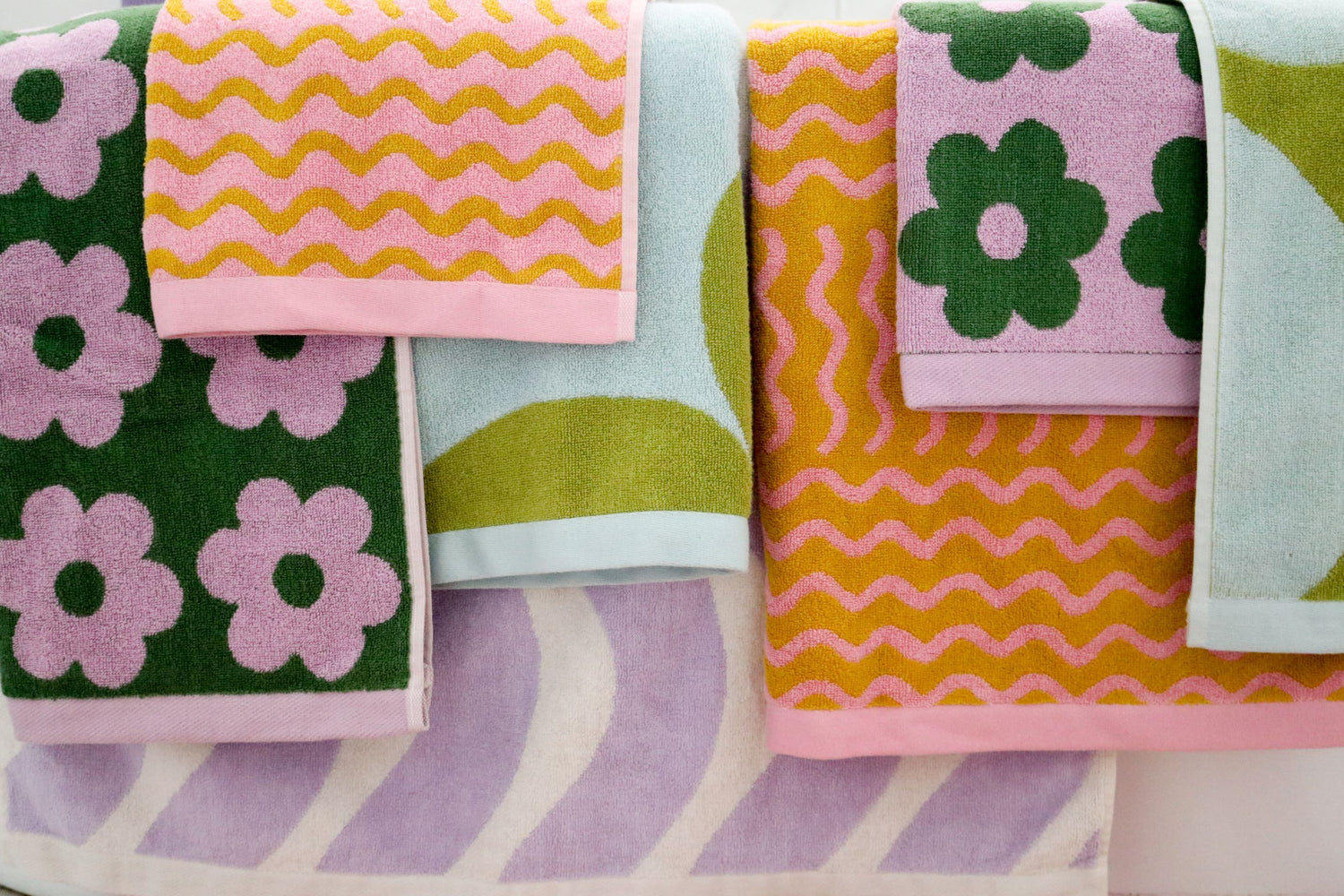At Mosey Me we’re always trying to find ways to live our values – including one of our core pillars, responsible manufacturing. We do this in a myriad of ways, including using deadstock fabric, ensuring our factories are paying and treating workers fairly, supporting local manufacturing where possible or choosing sustainable fabrics and production methods. This can be difficult as a small business, where minimum orders can be high and costs even higher. So we are extremely proud to be getting closer to our goal with our towel collection, which is made in Portugal from organic cotton.
But what’s so great about organic cotton? Here’s the 4-1-1 on our new fave material.
1. Organic Cotton is better for the environment
Organic cotton is grown in harmony with nature. To replace harsh chemicals, organic cotton farming relies on growing cover crops, applying organic fertilizers and compost, using beneficial insects, incorporating crop rotation techniques, and opting for human labor for weed control. Not only do these growing methods have a reduced impact on the environment, but many beings benefit from them. Organic production systems produce crops that have zero persistent pesticide and fertilizer residues (better for us and the planet) and are known to help support soil fertility and increase biodiversity.

2. Organic cotton is safer for the health of workers and consumers
Because organic cotton doesn’t use any toxic chemicals (think: formaldehyde, heavy metals, flame retardants, softeners, ammonia) commonly found in both the growing and processing of conventional cotton it supports better and safer working conditions for cotton farmers and their families, and for anyone who doesn’t want to absorb trace amounts of chemicals with every use.
3. It is safe for your skin and feels much better
Organic cotton towels feel demonstrably better than their non-organic counterparts - You can feel the difference! They’re also softer because they retain their natural properties much longer than conventional cotton. Additionally, most organic cotton is hypoallergenic and is safe for anyone with ashtma or chemical sensitivities.

4. Organic cotton uses significantly less water
Organic cotton uses approximately 25% of the water that is used to produce conventional cotton.
This is only the beginning of our responsible manufacturing journey, so stay tuned for more improvements and initiatives in the coming seasons. And thanks for coming along for the ride!
Jessie + Eliza
X
Explore our towel collection here
Follow the below resources to learn more:
https://organiccottonaccelerator.org/why-organic-cotton/
https://wholepeople.com/why-organic-cotton/
https://www.soilassociation.org/take-action/organic-living/fashion-textiles/organic-cotton/






Leave a comment
This site is protected by hCaptcha and the hCaptcha Privacy Policy and Terms of Service apply.